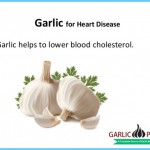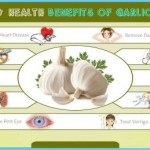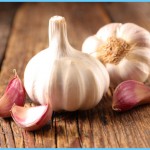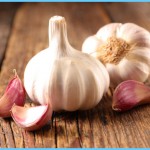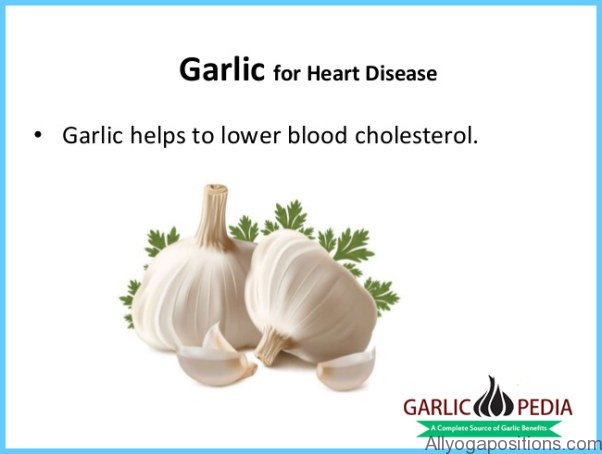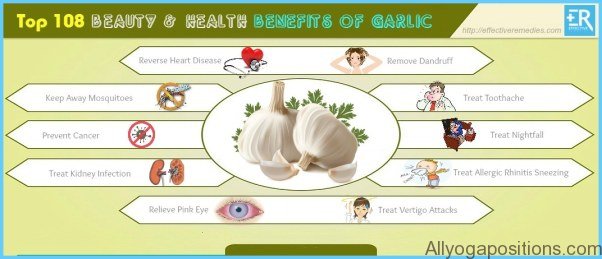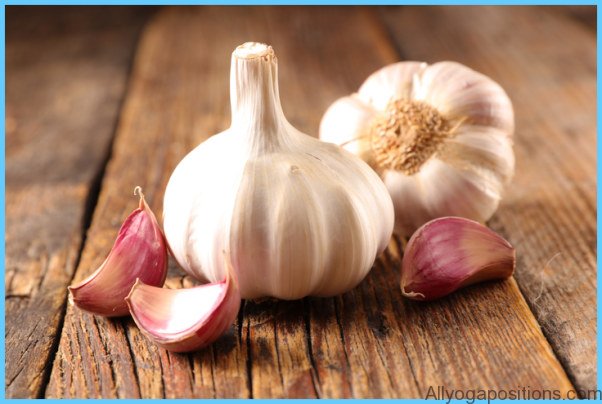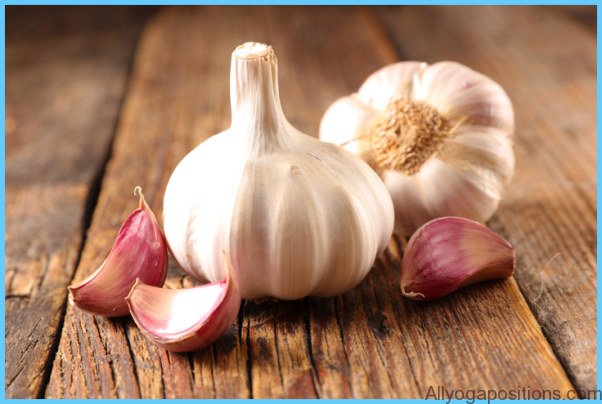Garlic contains many different sulfur compounds, and one in particular, called S-allyl cysteine (SAC), has been shown to lower LDL cholesterol by up to 10 percent.16 SAC is present in small amounts in raw garlic, but it increases in concentration
when garlic ages. The scientific studies that show a cholesterol-lowering effect have used an extract of aged garlic extract (Kyolic® brand).
Aside from its ability to lower blood cholesterol, garlic may protect from heart disease in other ways. Studies have shown the herb can lower blood triglyceride levels and thin the blood by reducing the stickiness of platelets. The sulfur compounds in aged garlic extract also act as an antioxidant and prevent damage to LDL cholesterol. Finally, a daily dose of aged garlic extract may also have a modest blood-pressure-lowering effect.
Many scientists agree that as little as a half clove each day will offer health benefits. And most people can take one or two cloves a day without any problems. Some people experience stomach upset when they eat raw garlic—the oil-soluble compounds in garlic account for its potential to irritate the stomach and to cause odor.
Try to use more raw garlic in cooking. Add it to sauces, soups, casseroles and salad dressings. Although raw garlic contains very little SAC, a recent study from Penn State University found that if you let crushed garlic sit at room temperature for 10 minutes before cooking with it, more of these beneficial sulfur compounds will be formed.17
When it comes to garlic supplements, the scientific research points to aged garlic extract as the supplement of choice, because of its higher concentration of SAC. Generally, two to six capsules a day (one or two with meals) are recommended.
The Bottom Line…
Leslie’s recommendations for preventing heart disease
1. To keep your cholesterol levels in the healthy range, reduce your intake of saturated fat.
2. To eat less trans fat, avoid foods that contain partially hydrogenated vegetable oils. If you use margarine, choose one labeled “non-hydrogenated.”
3. Be sure to include the heart-healthy omega-3 fats in your diet. Aim to eat fish three times a week.
4. To increase your intake of alpha-linolenic acid, a member of the omega-3 family, use flaxseed oil, walnut oil and/or canola oil. Include 1/4 cup (60 ml) of nuts in your diet up to five times a week.
5. If you use olive oil, buy the extra-virgin type. It’s been processed the least and contains the most antioxidant compounds.
6. If your cholesterol levels are in the normal range, feel free to enjoy one whole egg up to six times a week.
7. If your cholesterol levels are high, add 25 grams of soy protein to your diet each day.
8. Include a source of soluble fiber in your daily diet. Foods like psyllium-enriched breakfast cereals, oatmeal and oat bran can lower elevated cholesterol levels in conjunction with a low-fat diet.
9. When it comes to buying breads, cereals, rice and pasta, always choose whole grain.
10. Drink a cup or more of tea each day as a source of catechins, antioxidant compounds that protect your LDL cholesterol.
11. If you drink alcohol, limit your intake to no more than one alcoholic beverage per day.
12. Boost your intake of B vitamins to help keep your homocysteine levels down. To ensure you are meeting your needs, take a daily multivitamin and mineral supplement, or try a B complex supplement.
13. Eat at least one vitamin-C-rich food each day. If you’re concerned that you are not getting enough, add a 500- or 600-milligram supplement of Ester C.
14. For even more antioxidant protection, add vitamin E to your daily diet. To get the amount of vitamin E found protective in the research, take a daily vitamin E supplement (100 to 400 IU).
15. Each day include a source of lycopene in your diet. Heat-processed tomato products are the best food sources. If you choose to take a lycopene supplement, buy a brand that contains the Lyc-O-Mato™ or LycoRed™ extract.
16. To get more heart-protective sulfur compounds, increase your intake of garlic, both raw and cooked. Use 1/2 to 1 clove a day in cooking. If your cholesterol levels are high, consider taking aged garlic extract (it’s odorless too!). Take one to two capsules up to three times daily with meals. If you are on blood-thinning medication, check with your physician or pharmacist for possible side effects or interactions.

